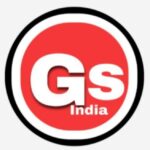कृपया आप सभी से निवेदन है कि आप पहले इन प्रश्नों को सॉल्व करेंगे फिर इसके बाद इन प्रश्नों के सही उत्तर देखने के लिए अंत में नीचे दिए गए उत्तर कुंजी (आंसर-की) में जाएंगे; इसी प्रश्नावली के अंत में आंसर की दी गई है।
Q1. कौन सा भाग भोजन व्यवहार पर नियंत्रण करता है?
Which part controls food behavior?
A. पीयूष ग्रंथि/ Pituitary Gland
B. पीनियल ग्रंथि/ pineal gland
C. अग्नाशय/ Pancreas
D. हाइपोथैलेमस/ Hypothalamus
Q2. कार्बन डाइऑक्साइड को हटाने में इनमें से शरीर की
कौन सी प्रणाली कार्य करती है?
Which of these body systems work in
removing carbon dioxide?
A. पाचन तंत्र/ Digestive system
B. प्रजनन प्रणाली/ Reproductive System
C. श्वसन प्रणाली/ Respiratory System
D. मूत्र प्रणाली/ Urinary System
Q3. मनुष्य कर्ण की श्रव्य सीमा…………….के बीच है:
The audible range of human ear is between ………
A. 200-20,000 Hz
B. 20-2000 Hz
C. 20-20,000 Hz
D. 500-5000 Hz
Q4. खून और फेफड़ों के बीच गैसों का एक्सचेंज क्या कहलाता है? What is the exchange of gases between the blood and the lungs called?
A. उत्सर्जन/ Excretion
B. आंतरिक श्वसन/ internal respiration
C. बाहरी श्वसन/ External respiration
D. ऑक्सीजनेशन/ Oxygenation
Q5. श्वसन की सामान्य सीमा होती है:
The normal range of respiration is:
A. 10-12 breath/min.
B. 20-28 breath/min.
C. 12-20 breath/min.
D. 16-24 breath/min.
Q6. पित्त निम्न में से किसमें संश्लेषित होता है?
Bile is synthesized in which of the following?
A. अमाशय / Stomach
B. अग्नाशय / Pancreas
C. गालब्लेडर / Gallbladder
D. जिगर/ Liver
Q7. यकृत द्वारा स्रावित रक्त प्रतिस्कंदन है:
The blood anticoagulant secreted by the liver is:
A. थ्रांबिन / Thrombin
B. प्रोथ्रांबिन / Prothobmin
C. हिपेरिन/ Heparin
D. उपरोक्त सभी/ All of the above
Q8. मानव शरीर में कौन सी संरचना से एपेंडिक्स संलग्न है?
Appendix is attached to which structure in
the human body?
A. छोटी आंत/ Small Intestine
B. बड़ी आंत/ Large Intestine
C. गॉलब्लैडर/ Gallbladder
D. जठर/ Gastric
Q9. निम्न में से कौन-सी मास्टर ग्रंथि के नाम से जानी जाती है?Which of the following is known as the
master gland?
A. थायराइड/ Thyroid
B. एड्रीनेलिन/ Adrenaline
C. पिट्यूटरी/ Pituitary
D. हाइपोथैलेमस/ Hypothalamus
Q10. कौन सी चिकित्सा पद्धति आयुष ( AYUSH) में
शामिल नहीं है?
Which medical system is not included in
AYUSH?
A. एलोपैथी/ Allopathy
B. होम्योपैथी/ Homeopathy
C. योगा/ Yoga
D. आयुर्वेदा/ Ayurveda
उपरोक्त प्रश्नों के उत्तर नीचे दिए गए हैं:
(Answer keys)
Q1.Ans.**D. हाइपोथैलेमस/ Hypothalamus
Q2.Ans.**C. श्वसन प्रणाली/ Respiratory System
Q3.Ans.**C. 20-20,000 Hz
Or 20 to 20, kHz
**Infrasonic sounds- a sound below 20 Hz.
**Ultrasound sounds- a sound higher 20 kHz
Q4.Ans.**C. बाहरी श्वसन/ External respiration
**External respiration- the exchange of gases between the lungs and the blood, it is can external respiration.
**Internal respiration- the exchange of gases between the blood and the tissue cells, it is can interal respiration.
Q5.Ans.**C. 12-20 breath/min.
Q6.Ans.**D. जिगर/ Liver
Q7.Ans.**C. हिपेरिन/ Heparin
Q8.Ans.**B. बड़ी आंत/ Large Intestine
**Appendix is 4 inches long tube that is
attached to the first part of your large intestine.
Q9.Ans.**C. पिट्यूटरी/ Pituitary
Q10.Ans.**A. एलोपैथी/ Allopathy
**AYUSH** mean
A- Ayurveda
Y- Yoga & Naturopathy
U- Unani
S- Shiddha
H- Homeopathy
मैं आशा करती हूं कि आपको यह बहुविकल्पी प्रश्न सीरीज (MCQ) पसंद आई होगी।
धन्यवाद!!
Writer: Vandita Singh Lucknow
(By GS India Nursing Classes Lucknow)
